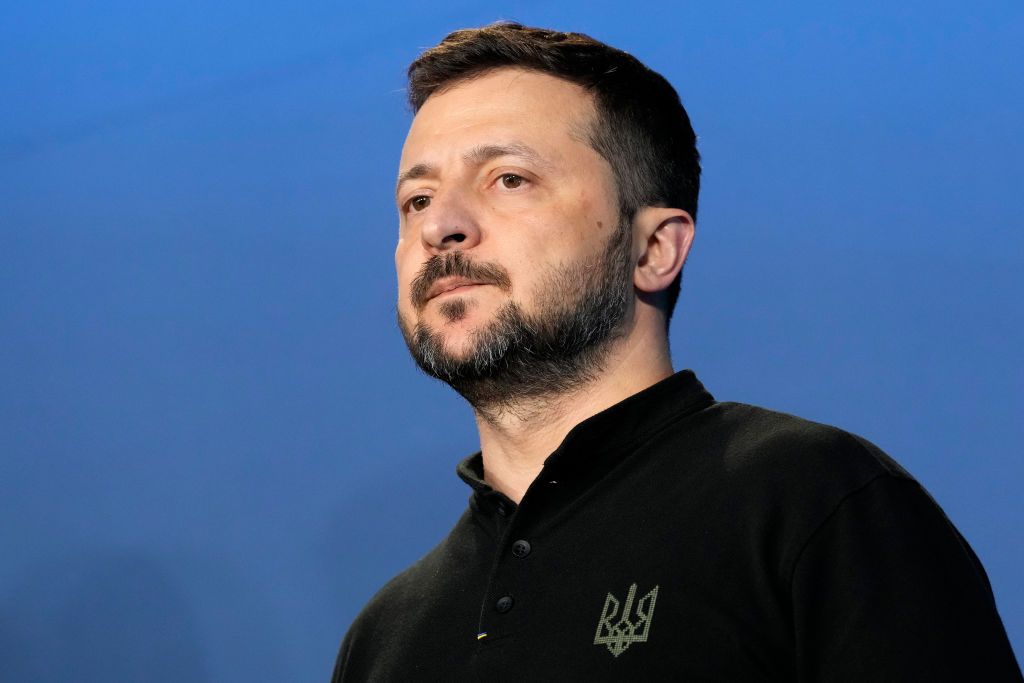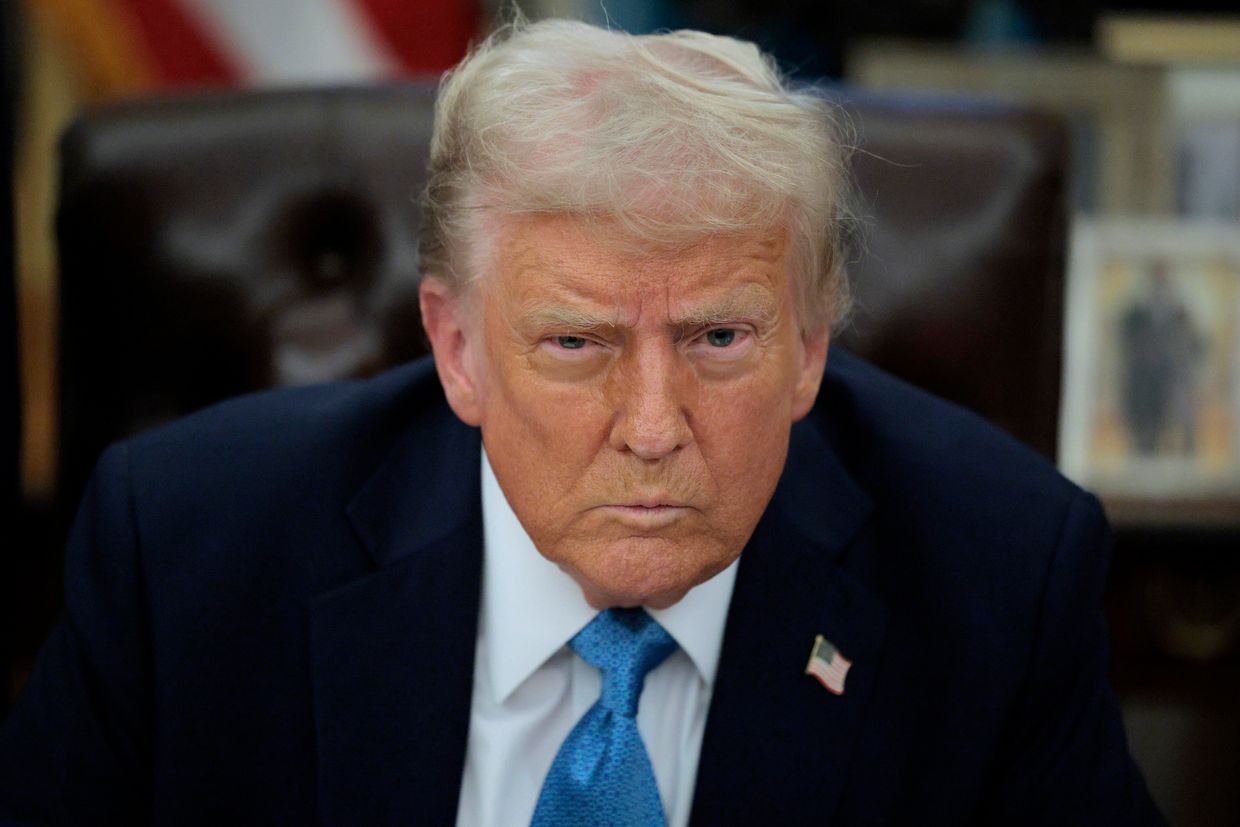We asked young Ukrainians what would make them sign up for the armed forces

A boy uses a Kalashnikov AK47 rifle during a training lesson at the military-patriotic center for schoolchildren in Lviv, Ukraine, on May 17, 2023. (Yuriy Dyachyshyn / AFP / Getty Images)
Ukraine faces a delicate balancing act — mobilizing enough people to fend off the immediate threat posed by Russia's full-scale invasion, and preserving enough of the country's youth to weather longer-term demographic concerns.
On top of this, U.S. lawmakers and NATO allies are reportedly urging Ukraine to lower its draft age from 25 to 18 to address the manpower shortages, a move that President Volodymyr Zelensky has consistently resisted.
The introduction of "special contracts" for those aged 18-24 appears to be an attempt by Kyiv to bridge the gap with a compromise solution — entice young people to sign up voluntarily, boosting the armed forces' manpower, while avoiding expanding forced mobilization.
The new one-year contracts will include a number of benefits, including a Hr
1 million ($24,000) annual salary, 0% interest mortgage rates, and free higher education, it was reported on Feb. 10.
A day later, Ukraine's Defense Ministry also said those who complete one year of service would be allowed to travel abroad. Currently, with a few exemptions, all men aged 18-60 are prohibited from travelling overseas while martial law is in place.
"We are building a new army recruitment system that meets modern challenges," Defense Minister Rustem Umerov said in a post on Facebook on Feb. 11 when announcing the special contracts.
"We are bringing in motivated warriors, providing them with career growth opportunities, and ensuring fair service conditions."
But according to several young men aged 17-24 in Kyiv who spoke to the Kyiv Independent, the enticements may be attractive, but concerns remain.
"I support this because it is very important to attract young people to the armed forces," 19-year-old Vadym Chaplyhin, a student at the Kyiv School of Economics tells the Kyiv Independent.

He said the proposed benefits "look pretty good" and the opportunity to go abroad after one year of service "will significantly influence the decision of many boys."
"(It is) a chance to see family and friends and travel the world a bit," he said, adding: "That is why I like this point very much, and if we consider my doubts about mobilization, this possibility significantly tips the scales in its direction."
But Chaplyhin has reservations about how a contract soldier might be viewed by those who were conscripted.
"How will other soldiers treat such mobilized people? After all, they may be perceived as those who have 'sold out' and will fight not for ideals, but for money," he says.
Oleksandr Slysh, a 24-year-old master's degree graduate, expressed deep skepticism that some of the benefits would be honored.
After his previous experience working as an assistant military lawyer for six months, he believes offers like the right to travel abroad would only be implemented for "high-ranking officials or their children," but not for "ordinary soldiers."
Slysh also suggests that no amount of money, free education or any other benefits can compensate for what he might experience if he ends up fighting on the front lines.
"Infantry is the hardest job in the armed forces, and most infantrymen are very psychologically traumatized if they survive," he says.
Enlisting in the military currently often means signing up until the war ends, with no end in sight, so the prospect of knowing the contract ends after one year is seen as a big plus by 23-year-old accountant Andrii. He and several other people interviewed for this story didn’t wish to be fully identified due to the sensitivity of the matter.
"I like all the conditions, but the most important thing is that the contract be fulfilled in one year," he tells the Kyiv Independent. "As they say, one year is enough."

But an 18-year-old studying to be a chef who didn't wish to be named, says he doesn't trust the authorities when they say the contract will actually end after one year.
"They could say 'sign this contract, you will serve for a year.' Then they will make some kind of law that says those who have signed a contract and served for a year are eligible for general mobilization, even if they're under 25," he says.
"I'm worried about what might happen after the contract is up."
Yevhen, a 24-year old computer science student at Kyiv-Mohyla Academy, suggests the special contracts only provide an incentive for less well-off Ukrainians.
"I think that it will be relevant for children from low-income families or villages, but in Kyiv I'm not sure how relevant it is," he says.
"Most students in Kyiv live with their parents and have free tuition, and an apartment at this age."
Dmytro, a 24-year-old economics student, echoed this sentiment, saying the decision to sign a special contract "depends very much on whether you have a job."
"If you're in some kind of civil service role or a good company or you're sitting in a ministry getting paid, you have much less time to be killed, and you don't need it," he says.
But for some, no number of enticements will be enough to make them sign up.
"My life is more important to me. And since I have no relatives here, nothing motivates me here at all," Bohdan, a 23-year-old tattoo artist says.
Yaroslav, a 17-year-old student, is thinking about his future career, but thinks the army is "not my thing."
"I'd rather be in the civilian world. I'm more interested in something like law or philosophy."











